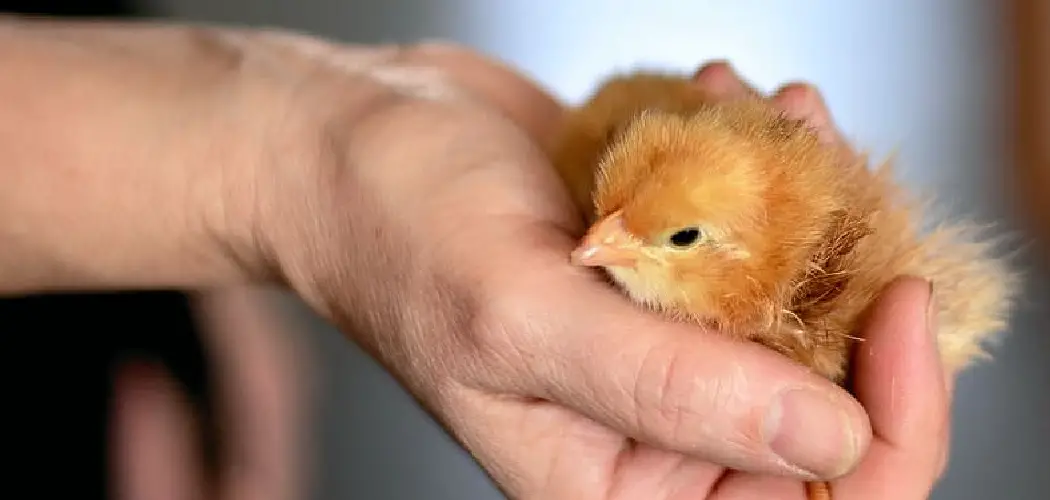Chickens are not just animals that provide us with eggs and meat, they are also pets for many people. And like any other pet, chickens need proper care and attention to live a happy and healthy life. One of the most important aspects of chicken care is keeping them cool, especially during hot summer months.
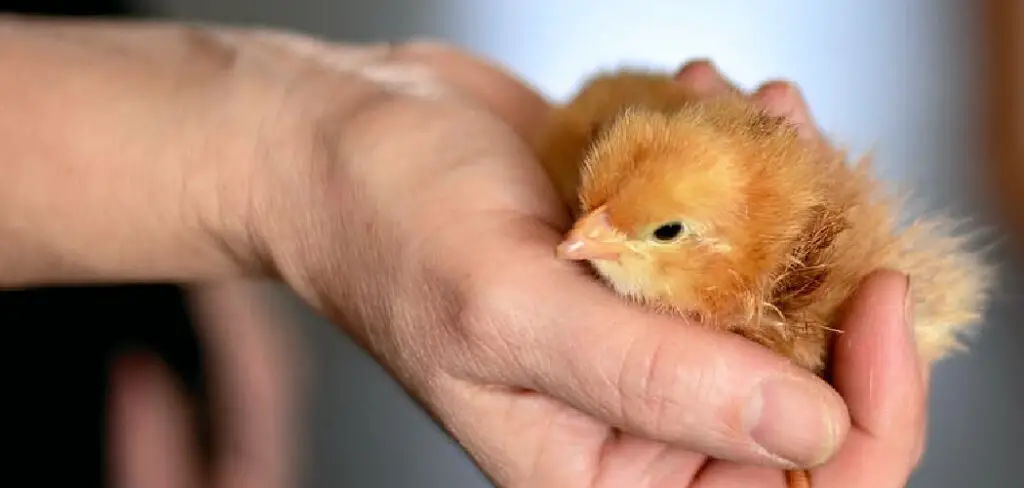
The main advantage of learning to keep chickens cool is that it helps ensure the health and well-being of your flock. When chickens are kept in a hot and humid environment, they can suffer from heat stress which can lead to reduced egg production, poor growth, and even death. In this blog post, You will learn in detail how to keep chickens cool.
Step-by-step Instructions for How to Keep Chickens Cool
Step 1: Inspect Your Coop
After the long winter months, it is crucial to inspect your chicken coop to ensure it is prepared for warmer weather. This includes checking for any damage and making sure there is proper ventilation. Fans are an excellent way to keep chickens cool, especially in areas with high humidity. Place fans strategically around the coop to circulate air and create a cooling breeze.
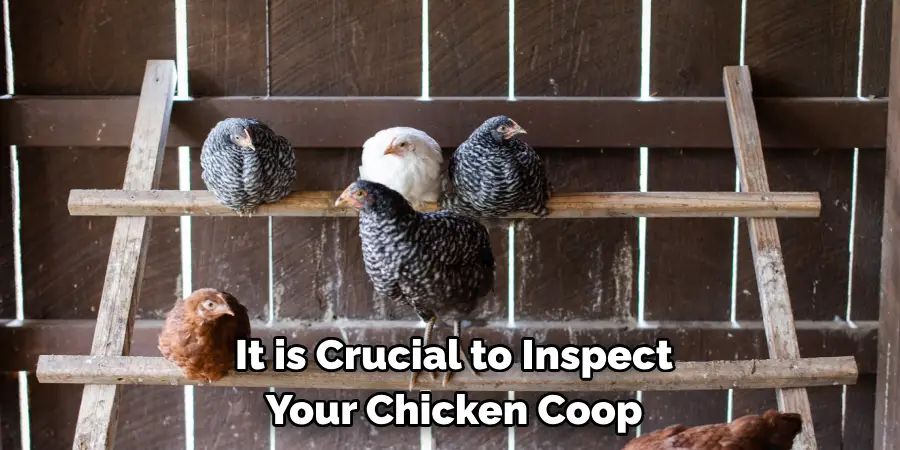
Step 2: Provide Shade
Chickens need access to shade during the summer months, as direct sunlight can cause overheating. You can use tarps or natural materials like trees and bushes to create shaded areas in your chicken run or coop. Misting systems are another effective way to keep chickens cool. They work by spraying a fine mist of water into the air, which lowers the surrounding temperature.
Step 3: Freeze Water Bottles
Fill plastic water bottles with water and freeze them to create makeshift ice packs. Place these in your chicken coop or run for your chickens to lay next to and cool off. Make sure your chickens have access to fresh, cool water at all times. You can even add ice cubes to their waterers to keep it colder for longer.
Step 4: Provide a Dust Bath
Chickens love taking dust baths, especially in hot weather. A shallow container filled with sand or fine dirt will provide them with a place to cool off and rid themselves of any pesky parasites. Handling chickens can cause them to become stressed and overheated. Try to limit handling during the hottest parts of the day, and always handle them gently and with care.

Step 5: Create a Mini Pool
Chickens enjoy splashing around in water, so consider creating a mini pool or shallow tub for them to wade in. Just make sure to change the water regularly to avoid any bacterial growth. It is important to monitor your chickens closely during hot weather. Look out for any signs of heat stress, such as panting, lethargy, or droopy wings. If necessary, move them to a cooler location or take other measures to cool them down.
By following these steps, you can ensure your chickens stay cool and healthy during the hot summer months. Remember to always prioritize their well-being and make adjustments as needed based on their individual needs and preferences.
Safety Tips for How to Keep Chickens Cool
- Provide Shade – It is important to provide adequate shade for your chickens during hot weather. This could be in the form of a tree, an awning or any other shelter that can protect them from direct sunlight.
- Create Good Airflow – Chickens need proper ventilation to keep cool. Make sure there is enough airflow in their coop or run by keeping windows and doors open or installing fans. This will prevent heat from building up in their living space.
- Provide Cool Water – Just like humans, chickens need plenty of water to stay hydrated and cool during hot weather. Make sure to provide clean and fresh water for them at all times. You can also add ice cubes to their waterer to keep it cool.
- Offer Cold Treats – You can give your chickens some cold treats like frozen fruits or vegetables to help keep them cool. This not only serves as a refreshing snack but also helps to regulate their body temperature.
- Avoid Handling Them Too Much – During hot weather, chickens may become agitated and stressed if handled too much. It is best to limit handling them during this time to avoid causing unnecessary stress.
- Consider a Dust Bath – Chickens naturally use dust baths to keep cool and clean. You can provide them with a shallow container filled with sand or dirt for them to take their dust baths in.
- Keep Their Environment Clean – A dirty living space can contribute to heat buildup and attract pests that may cause health issues for your chickens. Make sure to clean their coop and run regularly to maintain a healthy environment for them.
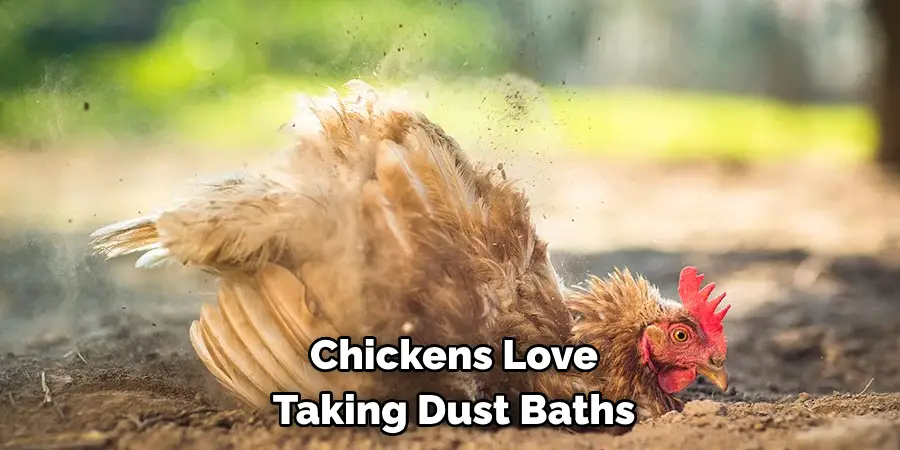
By following these safety tips, you can ensure that your chickens stay cool and comfortable during hot weather. Remember to always monitor them closely and seek veterinary care if necessary.
Importance of Keeping Chickens Cool
Keeping chickens cool is incredibly important for their health and well-being. As a responsible chicken owner, it is your job to ensure that your feathered friends are comfortable in all weather conditions. This not only includes keeping them warm during the colder months, but also ensuring they have a way to stay cool during hot summer days. Here are seven reasons why it is crucial to keep your chickens cool:
1. Preventing Heat Stress
Just like humans, chickens can suffer from heat stress if they are exposed to high temperatures for prolonged periods of time. This can lead to a number of health issues such as dehydration, lethargy, and even death. By providing your chickens with ways to stay cool, you can prevent this potentially life-threatening condition.
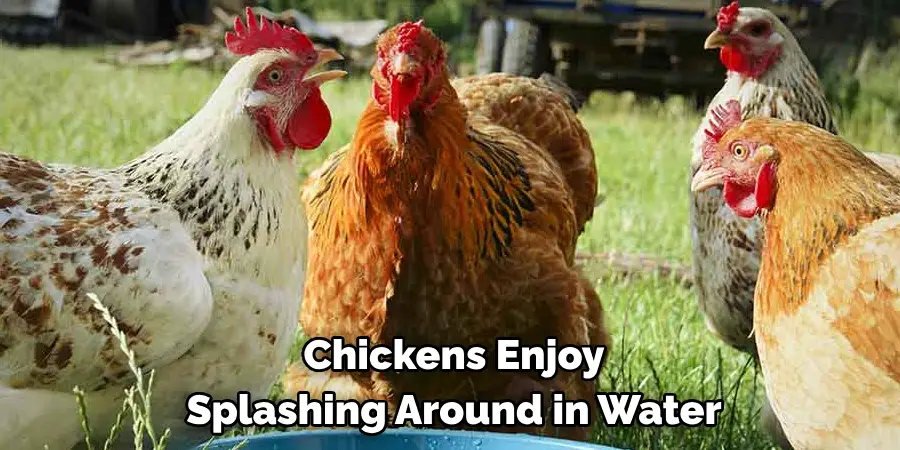
2. Maintaining Egg Production
High temperatures can also impact a chicken’s egg production. The stress of heat can cause hens to stop laying eggs altogether, resulting in a decrease in your egg supply. Keeping your flock cool will help ensure they continue producing fresh and healthy eggs.
3. Protecting Their Feathers
Chickens have thick feathers that help to regulate their body temperature. However, if these feathers become wet or dirty from excessive heat, they can lose their insulating properties and leave chickens vulnerable to the elements. Providing shade and keeping their coop clean can help protect their feathers and keep them cool.
4. Reducing the Risk of Disease
Heat not only affects a chicken’s physical well-being but also increases their susceptibility to disease. When chickens are stressed from heat, their immune systems can become compromised, making them more prone to illnesses. Keeping them cool and comfortable can help improve their overall health and reduce the risk of disease.
5. Promoting Good Behavior
Hot weather can also affect a chicken’s behavior, causing them to become irritable and aggressive. This can lead to pecking and fighting among flock members, resulting in injuries and a disrupted social hierarchy. By keeping chickens cool, you can promote good behavior and maintain a harmonious flock.
6. Improving Feed Conversion
When chickens are exposed to high temperatures, they tend to eat less due to the heat’s effect on their appetite. This can lead to poor feed conversion and affect their overall growth and development. Keeping your chickens cool can help ensure they are eating enough to support their nutritional needs.
7. Creating a Comfortable Environment
Lastly, keeping chickens cool is simply the right thing to do for their well-being. As living creatures, they deserve to be comfortable and happy in their environment. By providing ways for them to stay cool, you are ensuring that your chickens live a happy and healthy life.
By understanding the importance of this, you can take the necessary steps to provide a comfortable and safe environment for your feathered friends all year round. Remember to monitor their behavior and adjust accordingly during hot weather to ensure they are staying cool and thriving.
Winter Preparations for Summer
Winter may be a time for hot cocoa, cozy blankets and holiday celebrations, but it’s also the perfect time to start thinking about summer. While many people tend to wait until the last minute to plan their summer activities, being proactive during the winter months can save you time, money and stress. Here are some essential preparations you should make during the winter to ensure a smooth and enjoyable summer.
1. Start Planning Your Summer Vacation
Winter is the perfect time to start planning your summer vacation. With colder weather keeping you indoors, it’s the ideal opportunity to research destinations, compare prices and book flights and accommodations ahead of time. By planning early, you can often save money on flights and get better deals on hotels and activities. Plus, having your summer vacation planned ahead of time can give you something exciting to look forward to during the long winter months.
2. Evaluate Your Summer Gear
Before the temperatures start rising, take some time to assess your summer gear. Check if your beach towels, swimsuits, sunscreen and other essentials are still in good condition or if they need to be replaced. This will not only save you time and money in the long run, but it will also ensure that you’re prepared for any spontaneous beach trips or pool days that may come up during the summer.
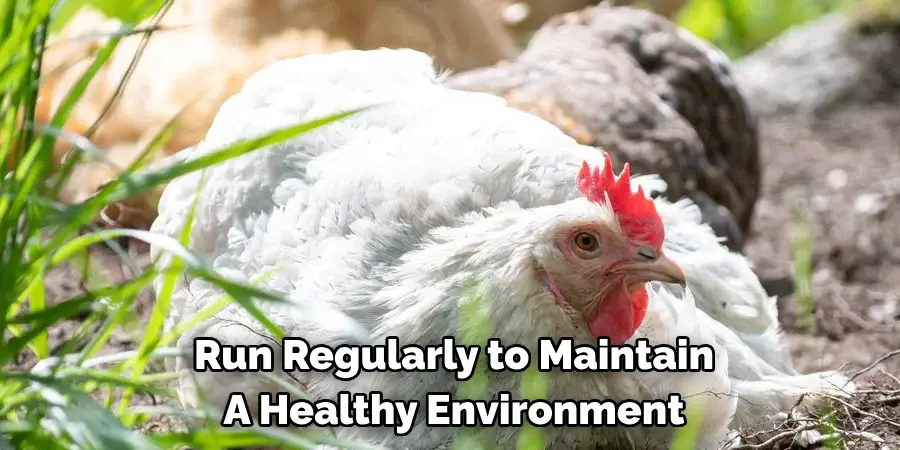
3. Get Your Body Ready
Winter is a great time to focus on your health and fitness goals. By starting early, you’ll have plenty of time to get your body ready for the beach or any other summer activities you have planned. Whether it’s hitting the gym, trying out a new workout routine or simply making healthier food choices, taking care of your body during the winter will help you feel confident and energized when summertime comes around.
4. Plan Fun Winter Activities
While preparing for summer is important, don’t forget to make the most of winter as well. Take advantage of the snowy weather by planning fun winter activities such as skiing, snowboarding, ice skating or building a snowman with your family and friends. Not only will this help break up the monotony of winter, but it will also give you lasting memories to cherish.
5. Check Your Home for Summer Readiness
During the colder months, our homes tend to accumulate dust and clutter. Take the opportunity during winter to declutter and deep clean your home, ensuring that it’s ready for summer entertaining. Check your outdoor furniture and grills for any necessary repairs or replacements, and make sure your air conditioning is in working order before the heat of summer arrives.
6. Stock Up on Summer Essentials
As winter comes to an end, keep an eye out for sales on summer essentials such as sunscreen, bug spray and outdoor toys. Stocking up on these items during the off-season can save you money and ensure that you’re prepared for any spontaneous outdoor activities or events.
Winter may seem like the least likely time to start preparing for summer, but by being proactive and taking care of important tasks early, you can have a stress-free and enjoyable summer. So don’t wait until the last minute, start planning and preparing for summer during the winter months.
Monitoring Chickens for Signs of Discomfort
Keeping a close eye on your chickens is an important part of being a responsible poultry owner. In addition to providing them with proper food, water, and shelter, it’s also essential to monitor their behavior and health regularly.
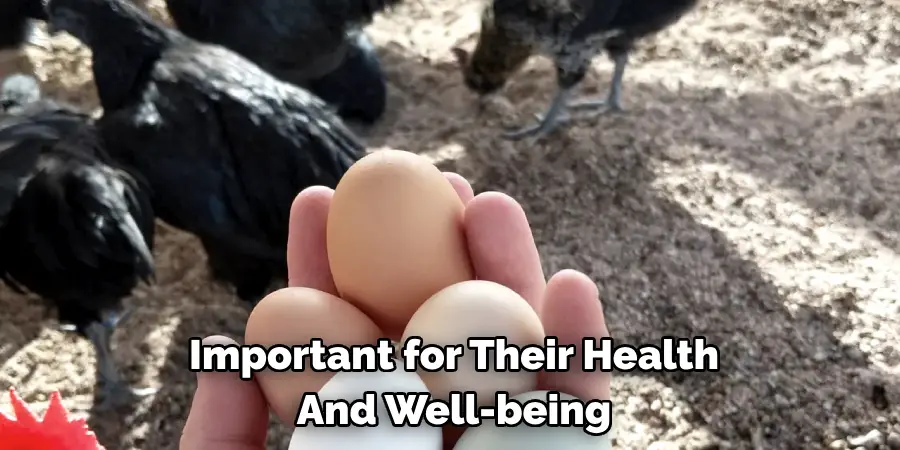
Why is monitoring important?
Chickens are living creatures that can experience discomfort and illness just like any other animal. By monitoring them daily, you can catch potential problems early on and prevent more serious issues down the line. This also allows you to take quick action and provide necessary care and treatment to your chickens.
What should you look for?
When monitoring your chickens, there are several signs of discomfort or illness that you should be on the lookout for:
- Changes in Behavior: This includes lethargy, aggression, or unusual vocalizations.
- Changes in Appearance: Look for signs of injury, such as cuts or bruises, and changes in feather quality.
- Changes in Eating and Drinking: If a chicken is not eating or drinking normally, it could be a sign of illness.
- Abnormal Droppings: Keep an eye on the color, consistency, and frequency of your chickens’ droppings as it can indicate potential health issues.
- Respiratory Problems: Wheezing, coughing, or sneezing could be signs of respiratory infections.
How to monitor effectively
In order to monitor your chickens effectively, you should establish a routine where you check on them at least once a day. This can be done in the morning when you let them out of their coop or during feeding time. It’s important to observe your chickens closely and not rush through the process.
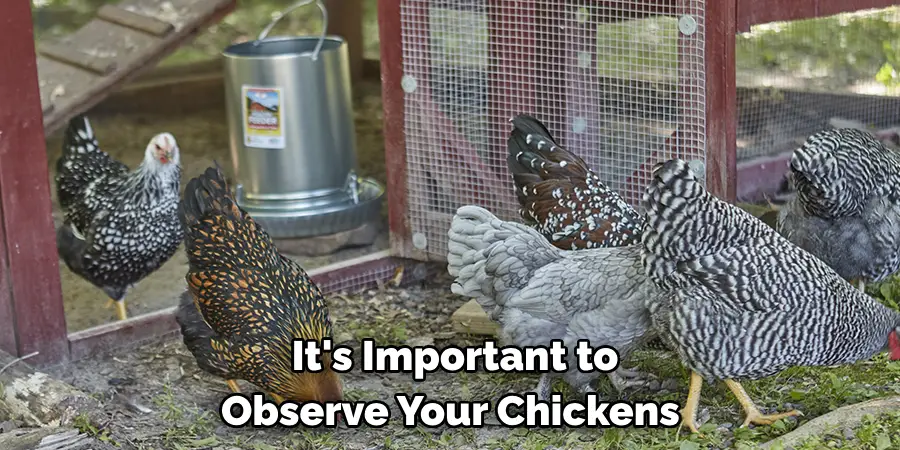
You should also keep detailed records of any changes or abnormalities you notice in your chickens’ behavior, appearance, or droppings. This will help you track any patterns and provide useful information to a veterinarian if necessary.
By monitoring your chickens regularly, you can ensure their overall health and well-being. It’s important to be proactive in identifying any signs of discomfort or illness and seek proper care and treatment when needed. Remember to always provide a clean and comfortable living environment for your chickens to prevent potential health issues.
Water Cooling Systems
Water cooling systems are an essential part of any high-performance computer. They are designed to keep the temperatures of delicate components, such as the CPU and GPU, within safe operating limits, allowing for better performance and longevity.
There are two main types of water cooling systems: open-loop and closed-loop. Open-loop systems require more maintenance and involve creating a custom loop with separate parts such as a pump, reservoir, radiator, and tubing. Closed-loop systems, on the other hand, come pre-assembled with all the necessary components in one unit.
When choosing a water cooling system, it is important to consider factors such as compatibility with your computer’s components, budget, and level of expertise. Open-loop systems are more customizable but require knowledge of building and maintaining a water cooling system. Closed-loop systems are more user-friendly but have limited options for customization.
Water cooling systems also come with different types of coolants such as distilled water, ethylene glycol-based coolants, and propylene glycol-based coolants. Distilled water is the most affordable option but requires regular maintenance to prevent algae and corrosion build-up. Ethylene glycol-based coolants are more expensive but have anti-corrosive properties, while propylene glycol-based coolants are non-toxic and have a lower freezing point.
Addressing Breed-specific Considerations
In addition to the general considerations when selecting a dog, there are also specific factors that should be taken into account for certain breeds. These include physical characteristics, personality traits, and potential health issues.
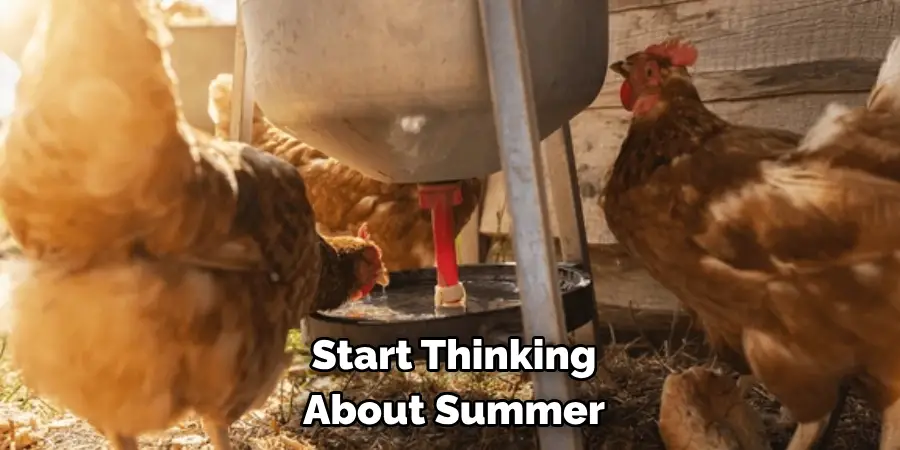
1. Physical Characteristics
Different breeds of dogs have distinct physical features that may require specific care or accommodations. For example, large breeds such as Great Danes or Saint Bernards may need a larger living space and more food compared to smaller breeds like Chihuahuas or Pomeranians. Breeds with long hair, such as Golden Retrievers or Maltese, may require regular grooming to prevent matting and tangling of their fur.
2. Personality Traits
Each breed also has its own unique personality traits that should be considered before bringing a dog home. For instance, some breeds are known for being more energetic and require lots of exercise and mental stimulation, while others are more laid-back and content with minimal physical activity. Some breeds may also have a tendency towards certain behaviors, such as barking or digging, which may not be suitable for all living situations.
3. Potential Health Issues
Certain dog breeds are prone to specific health issues that may require extra attention and care. For example, breeds with short snouts, such as pugs or bulldogs, are more susceptible to breathing problems due to their anatomy. It’s important to research potential health concerns for specific breeds before making a decision.
It’s also worth considering the average lifespan of different breeds when making a selection. While all dogs require love and care, some breeds may have shorter or longer lifespans than others. This should be taken into account when thinking about the long-term commitment of owning a dog.
In addition to these breed-specific considerations, it’s also important to assess your own lifestyle and living situation before bringing a dog home.
Conclusion
In conclusion, keeping chickens cool during the summer months can be a challenging task for many chicken owners. However, with proper planning and implementation of cooling strategies, it is possible to keep your feathered friends comfortable and healthy. One of the most important things to remember when trying to keep chickens cool is to provide plenty of shade. This can be achieved by planting trees or installing tarps over their coop and run area.
Another crucial factor is to make sure your chickens have access to fresh, clean water at all times. During hot weather, chickens will drink more water than usual to stay hydrated and regulate their body temperature. It is important to monitor their water intake and refill their waterers regularly. I hope reading this post has helped you learn how to keep chickens cool. Make sure the safety precautions are carried out in the order listed.
About
Outdoor Fixes is a distinguished figure in the world of Diy design, with a decade of expertise creating innovative and sustainable Diy solutions.
His professional focus lies in merging traditional craftsmanship with modern manufacturing techniques,
fostering designs that are both practical and environmentally conscious. As the author of diy,
outdoorfixes delves into the art and science of outdoorfixes-making, inspiring artisans and industry professionals alike.
Education RMIT University
(Melbourne, Australia) Associate Degree in Design (Outdoor Fixes) Focus on sustainable design, industry-driven projects,
and practical craftsmanship. Gained hands-on experience with traditional and digital manufacturing tools, such as CAD and CNC software.
Nottingham Trent University
(United Kingdom) Bachelor’s in outdoorfixes.com and Product Design (Honors) Specialized in product design with a focus on blending creativity with production
techniques. Participated in industry projects, working with companies like John Lewis and Vitsoe to gain real-world insights.
Publications and Impact
In diy, Outdoor Fixes his insights on indoor design processes, materials, and strategies for efficient production.
His writing bridges the gap between artisan knowledge and modern industry needs, making it a must-read for both budding designers and seasoned professionals.

